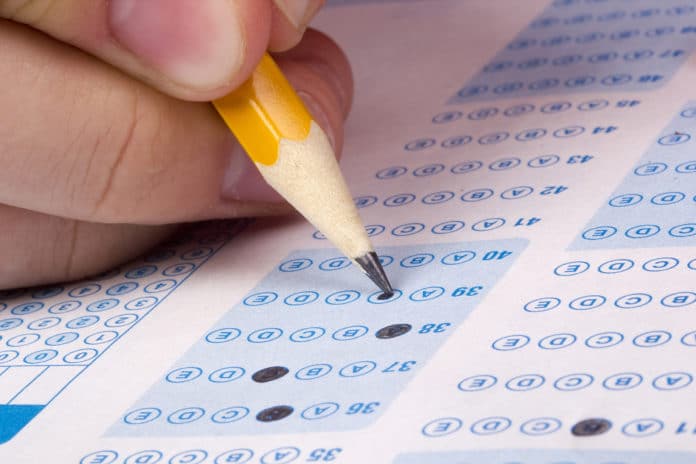We’re living in an era of low expectations for Minnesota students. It’s deeply troubling and rather ironic, given our governor’s proclivity for touting his classroom teaching experience.
It’s been a minute since I had a child in school. But, with standardized test scores dropping like a rock and reports of drag queen story hour and kids picking pronouns, I wanted to find out what’s going on in classrooms today.
Though teachers are uneasy about speaking publicly, several spoke on the condition of anonymity. Regardless of where they teach, they offered similar accounts of why many, though not all, Minnesota students are performing poorly.
Linda Hoekman was willing to go on the record. Hoekman taught science at Champlin High School for 25 years. But when she could no longer abide what was — and wasn’t — happening in the school, she left. She’s delighted to be working at a private school in the west metro, where she can teach as she once did.
Hoekman says, “We want all kids to have an equally wonderful education. But what does that look like? Many parents don’t have a clue.”
Education began to change years ago with a movement towards more inclusive classrooms and away from individualized instruction, Hoekman explained. Rather than using flexible grouping (which put kids of the same level or ability together), teachers were required to teach all kids the same way.
Consequently, students with more ability would be required to help students with less ability. Arguably a great plan, Hoekman said, it puts a lot of pressure on the more capable student. In addition, the teacher cannot offer every student the curriculum which best suits them.
With a dramatic increase in the number of students with emotional behavioral disorder diagnoses, teachers find themselves dealing with rampant behavior problems rather than focusing on content. “It’s the academically successful kids who really lose out,” Hoekman said.
The shift from phonics to whole language was a game changer. Instead of learning to read by sounding out words, most kids now learn to read by identifying the word through context. They’re not learning root words or syllables.
Hoekman had high school students who read at a fourth-grade level. She’s not alone. Another teacher said, “I have tons of kids who can’t read. But we can’t force them to take a reading class, especially if they want to take gym instead.”
Some schools use the modern classroom approach, which offers content online. Students work at their own pace. Teachers check in on and grade students’ progress. While some teachers like it, others consider it glorified babysitting.
Chromebooks are the new chalkboard or SMART Board. Google is today’s Encyclopedia Britannica. With phones in every pocket, kids have answers at their fingertips. But they’re not learning to be critical thinkers.
Racial equity advocates argue grading can perpetuate systemic racism and inequities. So, during COVID, the Minnesota Department of Education introduced a radical new grading policy. With no deadlines, teachers must measure effort, without regard for timeliness. A student who does nothing automatically earns 50 percent.
There’s no incentive to study. Students can keep retaking tests or quizzes until they have enough correct guesses. One teacher said, “Up through the eighth grade, it takes an act of Congress for a student to fail. If a kid does fail, they must have tried really hard.”
What are the ramifications of a policy that rejects accountability? Many schools dropped honor rolls and honors classes. Parents, not fully apprised of what’s happening, are surprised when their C student bombs the standardized tests.
Many students aren’t well prepared for college. They lack study skills, discipline, and focus. So, freshmen are taking remedial classes. Unhappy with their grades, college students — even law students — boldly challenge them.
Some students will always excel. It’s in their DNA. It’s expected at home. But what about those students who aren’t as intrinsically motivated? How can we expect anything greater than average performance if they don’t fear or experience failure? How can we expect teachers to remain motivated to teach at a high level when the bar is so low for their students?
Today’s students will comprise tomorrow’s workforce. But with today’s educational system performing so poorly, the exceptionalism for which America — and Minnesota — are known is at risk. How can we reasonably expect young people to meet expectations at work if they didn’t have to do so in school?
What happens in schools affects all of society. Hoekman says solutions lie with parents. “There are so many problems. But we need parents to be aware and to ask the right questions. Unless there are parents knocking on the door of the educators asking whether they’re serving their kids the way they need to be served, then the system won’t change.”
Not all of us are parents of school children. But we do have a hand in selecting our education leaders. We vote for a governor who will choose the commissioner of education; school board members who choose superintendents; and legislators who enact laws pertaining to education. Minnesota’s school children are counting on us to get it right.
The views and opinions expressed in this commentary are those of the author and do not represent an official position of Alpha News.

















